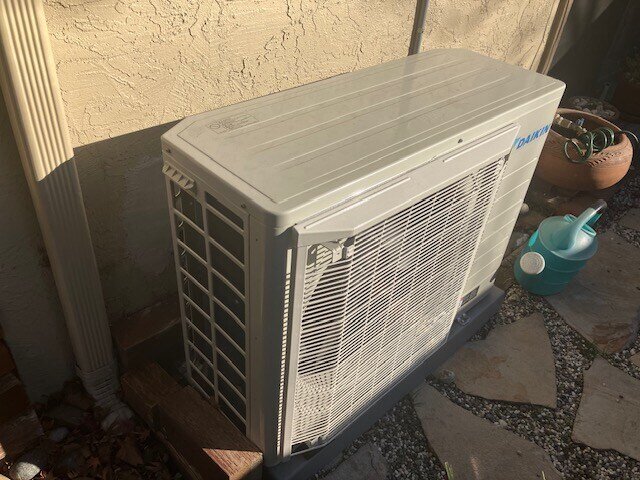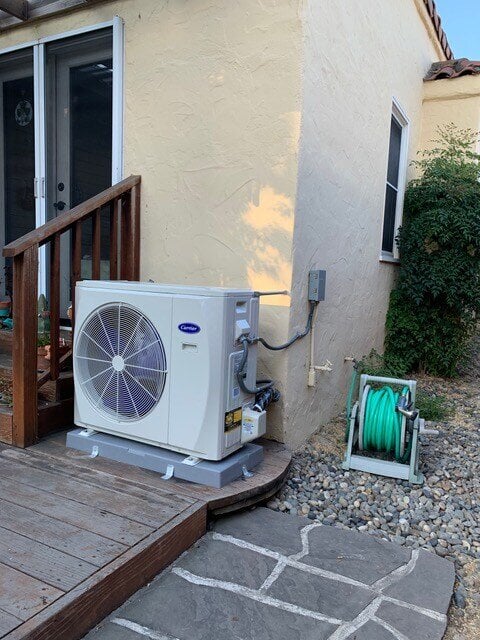When to Replace Your Home Heating System
Is your heating system aging? Don't worry, replacing an old heating system can seem challenging, but it's not as complicated as you might think. In this article, we'll cover when you should consider replacing your heating system, regardless of whether you use a boiler, furnace, or other system. If you do decide you need a replacement, we've also given an overview of the best options available.
-
Six Signs You Should Replace Your Heating System
-
Six Options for Replacing Your Heating System
-
Why Heat Pumps Are the Best Option for Heating
Six Signs You Should Replace Your Heating System
Noticing any of these things happening in your heating system? If so, it may be time to look for a replacement.
1. Frequent repairs
Spending money on costly repairs and service calls regularly? Then it's definitely time to replace your system. While heating systems do need regular maintenance, that doesn't mean they need nonstop repairs. Remember the sunk cost fallacy: if you've spent too much money on repairing a new system, don't be afraid to just replace it once it becomes unbearable.
2. Increasing utility bills
Make sure to read your utility bills carefully. If your heating system appears to be functioning properly but your energy use rises each winter, there could be an issue. While heating systems lose efficiency as they age, you may need to call an HVAC professional to check for additional problems. Installing a more efficient heating system will save you enough in heating bills to make it worth the upfront cost.
3. Constant thermostat adjustments
Do you find yourself continuously adjusting the temperature during the colder months? If you're continually trying to find the perfect setting, it's a sign of a more significant issue.
4. Uneven heating throughout your home
If you find yourself running into hot and cold spots while walking around your home, there may be a problem with your heating system. While you may think it's normal to have uneven heating, it isn't. It's usually an indication that something is wrong with your HVAC or insulation.
5. Short or frequent cycles and unusual noises
Your heater may be experiencing "short-cycling," when your heater continually stops and starts again. This is a sign of poor HVAC health. You should contact a professional to assess the issue. If your portable heater is short-cycling, it's a sign that it isn't powerful enough to heat your space.
Similarly, if your heater starts to make strange noises, such as knocking, popping, or screeching, don't ignore it. Depending on the type of system and the sound, you could be dealing with a serious and even dangerous problem.
6. Aging Heating Unit
HVAC technology generally lasts 15-20 years. While some systems can last longer, depending on the quality and maintenance schedule, it's best to be aware of when your heater is nearing the end of its life. Planning for a more efficient replacement is wise because if you wait until it breaks down, you may not have the time to find the best option and may end up paying more. For example, your HVAC unit may start emitting toxic fumes or gases, and you will need to replace it on very short notice.
Routine maintenance can extend the life of your unit. If your heating system has received regular maintenance over the years, it may continue to function well, even if it's getting old.
Six Options for Replacing Your Heating System
If you're considering replacing your home's heating system, several options are available.
It's important to note that your home's energy efficiency is just as important as the heating system you choose. A properly sealed and insulated home can make a huge difference in the efficiency and effectiveness of your heating system. That means getting a professional audit of your home and potentially paying for professional air sealing as well.
With that said, let's take a look at the different types of heating systems available:
1. Portable Heaters (Space Heaters)
Portable heaters, also known as space heaters, are a simple option for heating individual rooms. They're electric units that can be plugged into an outlet and moved around. Cheap and easy to install, portable heaters are convenient, but not very efficient. They can also be a safety hazard for pets or young children.
2. Heat Pumps
Heat pumps are a highly efficient option for home heating, and they work by extracting heat from the outside air and transferring it indoors. Even on the coldest of days, heat energy exists in the air, making heat pumps an intelligent and effective heating solution.
3. Hydronic or Radiant Floor Heating
Hydronic or radiant floor heating works by distributing heat through a film or mat under your floor or through a hydronic system that moves heated water through subfloor piping. It creates radiant heat throughout your home, including your furnishings. While it's ductless and produces comfortable heat throughout your living space, it's expensive and invasive to install and can limit your flooring options.
4. Electric Resistance Heating (Wall Heaters and Baseboard Heaters)
Electric resistance heating includes wall heaters and baseboard heaters, which can be installed in individual rooms that need extra heating support. While they're relatively affordable and allow you to control heat from room to room, they're not energy efficient and can be expensive.
5. Furnaces
Furnaces are quite simple and have been used since the Industrial Revolution. They work by igniting burners inside the furnace cabinet, which heat up a component called a heat exchanger. The heat exchanger then warms the air for distribution throughout your home via ductwork. Furnaces are a forced air system method of home heating. They are the most common home heating option in the US and can run on electricity, natural gas, propane, or heating fuel oil.
While furnaces are quick to distribute air, they can be noisy and aren't very efficient. It's important to choose the right size furnace for your home to ensure maximum efficiency. Electric furnaces tend to be the most convenient to set up.
6. Boilers
Boilers use natural gas, propane, or heating fuel oil to heat water or produce steam, which is then circulated throughout your home via pipes to radiators, baseboard heaters, or radiant floor systems. They're more energy efficient than furnaces and can last up to 30 years with proper maintenance.
However, boilers can be expensive to install and may require significant space in your home. Additionally, they can be noisy and may require more maintenance than other systems.
Why Heat Pumps Are the Best Option for Heating
Of the six options, heat pumps are the most energy-efficient, cost-effective, and environmentally friendly. Heat pumps can replace your entire HVAC system by providing whole-home air conditioning by reversing the heating process. There are two main types of heat pumps: air-source (moving outside air) and geothermal (moving underground air).
Heat pumps are available in both central and ductless versions, and they are an excellent choice for those looking for efficient ductless heating systems. Ducted or central heat pumps use the same configuration as traditional HVAC systems, which means that you can use existing ductwork if you have it. Meanwhile, ductless heat pumps use mini-splits to distribute the air. They are directly connected to an outdoor unit via copper lines, eliminating the need for ductwork.
Heat pumps offer several advantages and disadvantages when it comes to home heating. They provide evenly distributed heating throughout your home, and if you opt for the ductless mini-split option, you can control the temperatures of different zones independently. Heat pumps filter humidity and dust from the air.
They are fully electric, energy-efficient, and currently the greenest option on the market. Additionally, heat pumps can replace your entire HVAC system, as they can heat and cool your home. The primary obstacle to installing a heat pump is usually the upfront installation costs, but rebates and tax incentives are available to help offset these costs. For example, there is now a federal tax credit on heat pump installation (30% of costs up to $2,000). Heat pumps also typically raise the value of a home, as many homebuyers are looking for modern heating systems.
Compared to a furnace or boiler, heat pumps offer several benefits. Heat pumps are more energy-efficient, safer, and warm your space more evenly than a furnace. There is no furnace or boiler on the market that work as an air conditioner and a heater. Compared to a boiler, a heat pump is less expensive to maintain, offers better and more consistent heat, and is much more efficient. They are also safer as they don't run the risk of gas leaks or explosions.
Heat Pump Costs
The cost of installing a heat pump system can be a significant barrier for many homeowners. High-performance heat pump equipment ranges from $6K to $20K for the appliance units alone, while a complete heat pump system installation by a professional can cost up to $15-45K or more. Several factors will affect the cost to install a heat pump in your home, such as the type of heat pump you install, your home's size, the number of BTUs you need, the condition of existing ductwork, and weatherization to optimize performance and lifespan. Nevertheless, the superior comfort, low maintenance, lifespan, and energy efficiency of heat pump systems make them an excellent lifetime investment for most people.
QuitCarbon has helped hundreds of homeowners with energy efficiency. If you are looking to replace your home heating system or make any improvements to your home, get in touch with QuitCarbon. We can give you a free "Electrification Plan" and then put you in touch with our network of trusted contractors. This will make the process of electrifying your home much easier.



